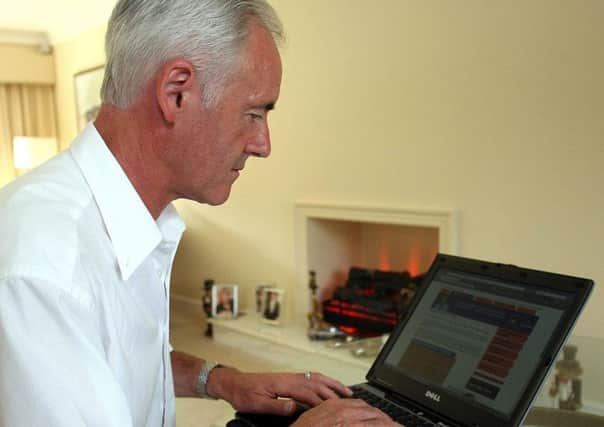If you can't get online you're missing out on a world of opportunity


Fortunately, the effects of the attack were dealt with quickly, and we’ve all been online ever since. But the incident begs the question: how would we cope if we were permanently disconnected? On days when I use SatNav to travel to a meeting; then connect to the CrossReach network to access my documents and communicate via e-mail; then go home and stream a boxset in the evening, I spend almost all of my waking hours connected to the internet. But millions of our fellow-citizens are currently excluded from our online society.
The Office for National Statistics (ONS) reports that 1 in ten adults in the UK have never used the internet, and 1 in five lack basic digital skills. This puts people at a serious disadvantage. If you can’t get online, you can’t get the best deals from shops, or from gas and electricity suppliers. It means you are excluded from popular culture as you can’t see the TV shows and films everyone is talking about. It even means keeping in touch with friends and family who communicate via social media is difficult.
Advertisement
Hide AdAdvertisement
Hide AdI work for CrossReach, the Church of Scotland’s national social care provider. Our role is to support people in communities across Scotland whose circumstances are a barrier to equal participation in their communities. We support people who may have a disability; or a mental health problem; who may be recovering from an addiction; or living with dementia or are facing many other such circumstances. We recognise that being connected is going to determine the opportunities people have to be part of our society.
It’s not just about helping people to catch up with what others are already doing. Using connected technology has particular advantages which can change the lives of some of the people we support. For example, CrossReach staff have used webcams to help people stay in touch with friends and family. A man we support in Aberdeenshire was able to use Skype to be part of his granddaughter’s wedding. It is clear that widening access to the internet and digital technology should be a priority for social care.
The UK Government’s 2014 Digital Inclusion Strategy aimed, by 2016, to reduce the number of people without basic digital skills by a quarter. However, the figure has remained constant at 20 per cent of the UK population. There is still work to do. It is not good enough to assume that age or circumstance means people are not interested in getting online.
At CrossReach, we have taken up the challenge of supporting people to get online by, for example, investing in tech rooms in our care homes and setting up wi-fi in all of our services. Computing courses designed, run and attended by people who use our services for adults with learning disabilities, have made a real difference to people’s confidence.
Increasing digital participation is an issue of equality. An investment of time and money is needed to extend opportunities to everyone, and CrossReach will look for ways to work with others so the people we support can take part in our online society.
Ian Wauchope is Director of Finance and Resources at CrossReach, www.crossreach.org.uk